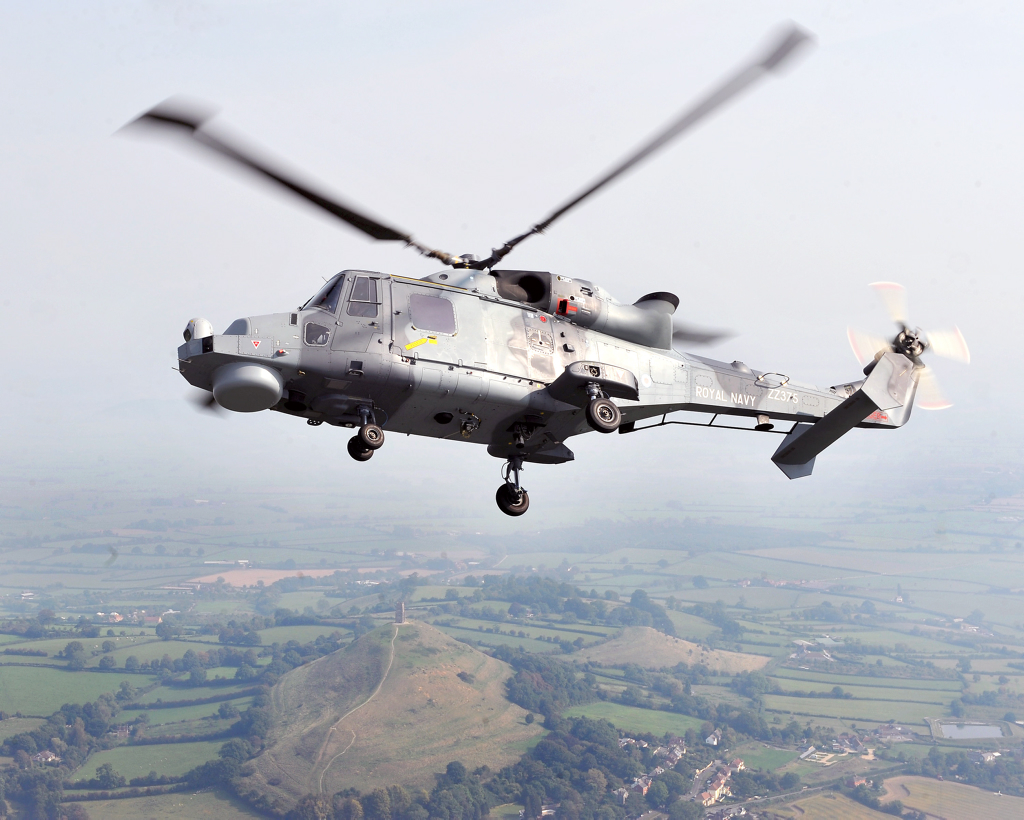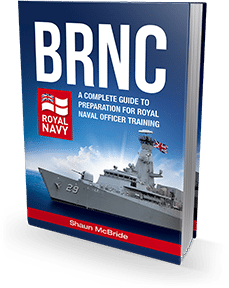
Britannia Royal Naval College Dartmouth (BRNC), is the official initial training establishment for officers of the British Royal Navy. As a fighting force, every Navy serviceman and woman must be physically and medically fit to carry out their duty in times of war. To be unable to get to a casualty or fire quick enough, or not being able to carry out your duties due to a lack of fitness, is unacceptable and is incredibly dangerous to the ship and its crew. This cannot be relaxed in peacetime. Casualty, fire and other rapid response task forces cannot allow employees more time to get fit enough for war. A continuous level of minimum fitness must be upheld by the entire fleet, in order to allow it to perform to its full potential.
With all this in mind, it goes without saying that you’ll need to be extremely fit to get through BRNC Dartmouth. In this guide, we’ll show you just how good your fitness needs to be, and how you can improve it!
How fit do I need to be for BRNC Dartmouth?
On joining BRNC, the only real fitness benchmark is to be able to pass the 1.5 Mile Fitness Test, and/or the Multi-stage Fitness Test (Bleep Test) to the correct standard, according to age and gender. You must also be medically fit, which includes staying within the correct weight parameters. This benchmark will exist throughout your entire career, and you will be required to pass it at any time, but at least annually. This is the minimum level of fitness expected by the Physical Training Instructors at BRNC.
You will also be required to pass the Swimming Test. This involves treading water for 2 minutes then swimming 50m and climbing out of the pool at the deep end.
If you are unable to achieve these fitness standards you will undertake remedial training in your precious spare time, and if you are still unable to pass, you will be withdrawn from training. It is also frowned upon to fail the BRNC Dartmouth fitness test, as it displays a lack of preparation, commitment and self-motivation, all qualities required to be an officer.
TOP TIP: You will usually undertake your first BRNC Dartmouth fitness test after 6 days of intense training. You will be unaccustomed to the long days and strain on your body for those 6 days, after which your fitness is tested. For this reason, it is not uncommon to lose time on your normal 1.5 Mile run time. Therefore it is important to prepare for this eventuality by being as fast as possible before joining, to provide yourself with a safety margin.

What fitness will I be doing?
A higher level of overall fitness will be expected of you than in the fitness tests alone. Your fitness will improve dramatically in all respects in the time that you are there. However, you don’t want to be at the back of the pack and behind the curve. As this is far more subjective, the best advice is to be as fit as possible on arriving at BRNC. You will be less fatigued by the specific phys (exercise training) you are given, you will cope better with the very physical challenges of the rest of training, and you will, in general, find the experience less challenging.
Twice a week, the college conducts ‘Period Zero’ sessions before the start of the working day. You will muster (meet) outside the college gym at 0600 for a session before breakfast. The session you will undertake will be specific to the requirements of the phase of training you are in. These nearly always take place outside, regardless of weather or season.
What does this include?
The fitness required for this includes a variety of sprints and endurance runs. Therefore you should focus on improving both your ability to sprint and recover, and your jogging. The college grounds sit on a large hill, and this is used for good effect to amplify your training. Getting used to an incline while running will be advantageous. This will also include a lot of body weight exercises: squats, press ups, sit ups etc. Lastly, leopard crawling is a favourite military pastime. Search for it on YouTube, and integrate this into your BRNC Dartmouth training if you have the inclination.
Once or twice a week, your division will also conduct an ‘Initial Military Fitness’ class in the college gym hall. This is a package that starts with teaching you how to conduct each section of the session with only a little fitness element, but rapidly ramps up to you completing a session, with fitness based forfeits if you break the rules of the class. The session is similar to ‘Drill’, where you are given specific orders to complete specific actions, all of which are done in time with the rest of your class. This session not only increases fitness, but instils discipline and loyalty. The session is made up of sprints and jogs, and again, many body weight exercises. The use of equipment for tricep dips, rope climbs and box jumps will also be included.
IMF Rules to watch out for
- No moving without being told to, including wiping sweat off your face or itching.
- No speaking.
- Paying attention to the PTI at all times.
- Don’t get distracted (and therefore fall out of time with the rest of the class.)
- No moving without a specific order or speaking.
Any of the above will attract punishment by fitness, in an already physically challenging session. This will normally be only for your classmates, while you watch, making you a lot less popular.
Usually at least once per term, you will conduct a Period Zero-like session, competing against another division. This is used to teach the carrying of a stretcher or equipment, as well as to improve fitness.

How do I prepare for this?
Everyone’s starting fitness level, preferences and time availability are different, therefore a training plan would be impossible to write, despite its usefulness! With this in mind, devising your own BRNC Dartmouth fitness plan is essential.
The principle of specificity is important in all fitness. This means if you are training for a marathon, there is little benefit in doing push ups. It is best to train by running. For this reason, use of the previous section for determining what fitness to do is advised. For press ups, practise press ups. For sprints, practise sprints. Working out using resistance machines won’t have as much benefit, as the fitness at BRNC Dartmouth will be outdoors and bodyweight focused:
Tabata. A useful way of practising press ups and other exercises is Tabata. This means doing as many press ups as possible in 20 seconds, followed by 10 seconds rest. This is done 8 times, taking only 4 minutes.
High Intensity Interval Training. Sprints, followed by short periods of rest (similar to Tabata) are an effective method to improve how long and fast you can sprint, as well as giving you time to recover your breath. Using lamp posts on the street is a popular method of regulating this activity.
Cross Fit. Very popular with members of the Armed Forces, Cross Fit gyms all over the country offer an effective all round fitness training programme. The sessions (minus the Olympic lifting) are similar to the sessions you will find in training.
British Military Fitness. A company that employs ex and serving military personnel, often (ex-)Physical Training Instructors, to run fitness sessions around the country. Again, this is very similar to the sessions you will undergo in training. Therefore, if you are able to get to at least a weekly session, you will be much better accustomed on arrival at BRNC Dartmouth.
BRNC Dartmouth Preparation Guide
BRNC isn’t just about fitness. You’ll need loads more knowledge to succeed at the college, and that is why Shaun McBride has written this fantastic book. As someone who has experienced the entire process firsthand, there’s no better guide to BRNC Preparation!

